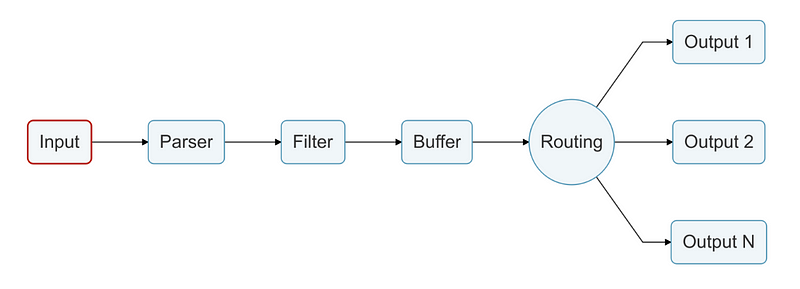Routing your service logs to multiple destinations has never been easier.
Fluentbit is a powerful tool to manage and route your logs.
-
It’s usually run as a sidecar to your service(s).
-
Fluentbit ingests, parses, and routes logs to the destinations you define.

Why it matters:
- Save costs — send a subset of logs to an indexing platform (Datadog, Splunk, etc.), the rest to an archive like S3.
Logs are crucial for operating your service. You may need to react to errors quickly but also shelve them away for historical analysis.
To that end, I want to configure Fluentbit to send:
-
ERRORlogs to Datadog -
All logs to S3
# fluent-bit.conf
[SERVICE]
Flush 1
Log_Level TRACE
[FILTER]
Name rewrite_tag
Match_Regex ^(?!index_in_datadog).*
Rule $log .*ERROR.* index_in_datadog false
[OUTPUT]
Name datadog
Match index_in_datadog
TLS on
apikey ${DD_API_KEY}
dd_service ${SERVICE}
dd_tags env:production
[OUTPUT]
Name s3
Match *
Region us-east-1
bucket my_log_bucket
s3_key_format /${SERVICE}/%Y/%m/%d/%H/%M-%S-$UUID
upload_timeout 30s
retry_limit 3
Fluentbit processes logs in a pipeline:
-
Filterstage: matchesERRORlogs and attaches theindex_in_datadogon them -
First
Output: send logs to Datadog ifindex_in_datadogtag is on the log -
Second
Output: send all logs to S3

Local testing
I find this workflow helpful for testing Fluentbit config locally:
-
Create a file with logs to test
-
Add a
tailinput to the config -
Add a
stdoutoutput to the config -
Run the Fluentbit Docker container using the config
-
Observe output
[INPUT]
Name tail
Path /fluent-bit-conf/my_log.log
Read_from_head true
...
...
[OUTPUT]
Name stdout
Match *
Docker command:
docker run --rm -it \
-v $PWD/:/fluent-bit-conf/ \
-p 24224:24224 \
-e DD_API_KEY=XXXXXXX \
fluent/fluent-bit \
-c /fluent-bit-conf/fluent-bit.conf
Happy logging! 🌲🪓🪵🎉